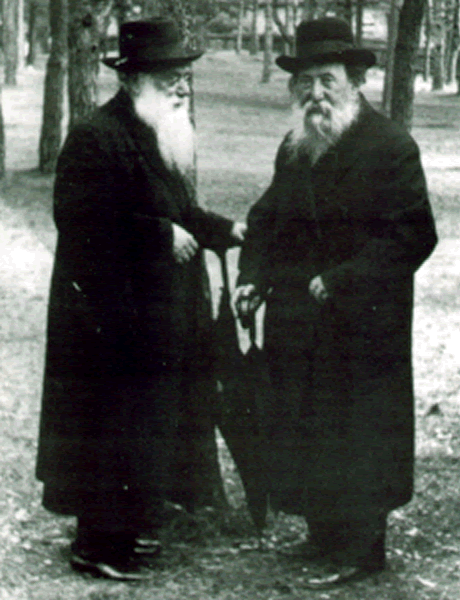What a great surprise.
I had to obtain an item and the gentleman on the other end of WhatsApp and I arranged for a time when I would pick up said item.
Let’s call this gentleman Mr. M.
Mr. M asked if I wanted to pick the item up from his house or from his workplace. It transpired that he lives around the corner, so I suggested that if it wasn’t a problem, to nominate a suitable time/day and I would pick up the item from his home. A day and time were chosen and I went to M’s home.
M is a Holocaust survivor in his nineties, most articulate, speaking an impeccable English. Sitting in his living room, it was apparent that his wife had passed away and M lived alone. I have a nostalgic attraction to older people who can describe the world prior to the Holocaust, and in Mr. M, I had a survivor who had not lost the sharp mind of his youth, and who seemed to remember everything. Stemming from our conversation, it was plain that Mr. M was struggling with the meaning of the Holocaust and the role of God. Indeed, this was subsequently confirmed at our second meeting today.
We didn’t speak Yiddish, although I suspect we could have. In fact, I know we could have. Mr. M was born in Vilna. Every person I had met from Vilna, was super proud that they came from Vilna. This was a badge of honour. Vilna! One thinks immediately of the great Gaon of Vilna, Rav Eliyahu ben Shlomo Zalman, the Gra, זצ׳ל.
.jpg)
Facing this holocaust survivor, I didn’t mention the Gra as Mr. M would have heard about him but not seen him, of course. Instead, I said
“Vilna! let me tell you that you had the world’s number one Posek at that time, Rav Chaim Ozer Grodzinski, after which I mentioned some of Rav Chaim Ozer’s famous Piskei Halacha (see שו”ת אחיעזר). I sensed some satisfaction from M, that I had a theological connection with Vilna”

I could tell that he was somewhat drawn to me because I was “modern”, in the Secular world of academia, and yet committed. It was clear that his view of religious Jews was limited to the Charedi style of Jew. I mentioned Rav Chaim Ozer’s view about electricity. Rav Chaim Ozer held that a bulb with a filament was no different to a candle, and as such, he (like Rav Chaim Brisker and others) used an electric bulb בדווקא for Havdala, and with a Bracha.
Here I was, a middle-aged upstart, trying to impress this survivor with my knowledge of Vilna; a tad anachronistic. Rav Chaim Ozer was an immense scholar, and מורי ורבי, Rav Soloveitchik ז׳ל gave a momentous hesped after Rav Chaim Ozer passed away, when Rav Soloveitchik was still senior in the Aguda.
Casually, Mr. M exclaimed
“I knew Rav Chaim Ozer personally.”
Flabbergasted, I asked
“how did you come to know him?”
to which he answered
“he was our next door neighbour.”
I was floored! Feeling mostly trivial, I asked if he could relay a story about Rav Chaim Ozer and himself. He had mentioned that his grandfather was very religious, as was his father. Mr. M remembers as a little boy, people coming over and there were huge disagreements about a Talmudic question.
One Shabbos afternoon, a young Mr. M, was famished. He was not yet Bar Mitzvah and decided to sneak into the nearby forest to find some food. Chancing on some mushrooms, Mr. M gathered the mushrooms and realised that because it was Shabbos, he would be unable to bring the mushrooms back to his house without people noticing. This was not something one did on Shabbos, especially living next door to Rav Chaim Ozer. Mr. M noted the tallest nearby tree and dug a hole to bury his booty at the base of the tree. The forest didn’t present any formal pathways, and the tree served as a semaphore in retrieving the mushrooms the next day. As. Mr. M was starting to bury the mushrooms, he was startled to hear someone trudging through the forest nearby. Looking up, mushrooms in hand, he was face to face with the great Gaon, Rav Chaim Ozer! (Mr. M noted that Rav Chaim Ozer would often go for a walk every day, alone, and this was not unusual.) M’s face turned bright red with embarrassment, as he stood up slowly, allowing the mushrooms to slip from his grasp. Rav Chaim Ozer, sensing that Mr. M was embarrassed to be ‘caught’, put his arm on the shoulder of Mr. M and said,
“Don’t worry, this is not work”
I was struck by Rav Chaim Ozer’s sensitivity. He had chosen the right words because Mr. M said that after he heard this from the mouth of Rav Chaim Ozer, he felt more comfortable with his religion. (he had mentioned that people talking in Shule in Vilna, annoyed him because they seemed insincere, and he seemed hypersensitive about hypocrisy)
I sensed that Mr. M didn’t appreciate that Rav Chaim Ozer was diplomatically placating him, rather than stating a coarse halacha to a boy. It didn’t matter.
We spoke again today for another 1.5 hours, at his request, and I was rather pleased that our discussion apparently went some way to alleviating some lingering questions that he had.
For example, today, he asked me point-blank “Who perpetrated the Holocaust, God or man?” I answered that the Holocaust was a tragic exercise of free will, given to humanity. He appeared surprised and was glad I didn’t answer that it was “a punishment for burying mushrooms on Shabbos”.
Sadly, there aren’t too many Mr. M’s remaining. I will make an effort to revisit him.



You must be logged in to post a comment.